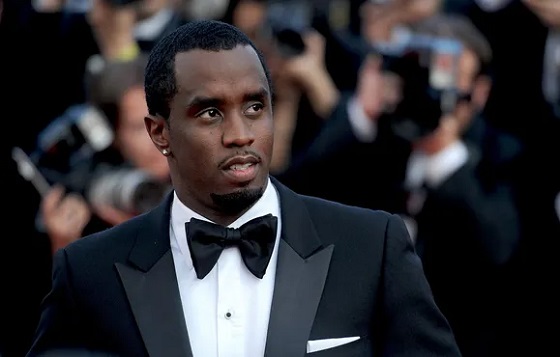Health
WHO assembly adopts ‘pandemic agreement’ binding countries to unified response

From LifeSiteNews
The World Health Organization’s newly adopted Pandemic Agreement binds member countries to a unified, WHO-directed response to future pandemics, raising concerns about national sovereignty and global control.
The World Health Organization (WHO) assembly has adopted a “pandemic agreement” to regulate countries’ responses to future pandemics.
On May 20, member states of the WHO have approved the Pandemic Agreement, a treaty that critics have warned would give the globalist WHO increased power in the event of another “pandemic.”
The agreement began by “recognizing that the World Health Organization is the directing and coordinating authority on international health work, including on pandemic prevention, preparedness and response.”
The agreement, which took three years to finalize, binds all countries that are part of the WHO. Notably, the United States, under the direction of President Donald Trump, is not part of the agreement.
According to the agreement, “the international spread of disease is a global threat with serious consequences for lives, livelihoods, societies and economies that calls for the widest possible international and regional collaboration, cooperation and solidarity with all people and countries, especially developing countries, and notably least developed countries and small island developing States.”
While the treaty repeatedly assures that it will reaffirm “the principle of the sovereignty of States in addressing public health matters,” it calls for a one state response, directed by the WHO, to future health crises.
“The Parties shall promote a One Health approach for pandemic prevention, preparedness and response,” the agreement declares.
Countries are expected to “take measures that it considers appropriate, aimed at promoting human, animal and environmental health, with support, as necessary and upon request, from the World Health Organization and other relevant intergovernmental organizations.”
As part of being prepared for a future “pandemic,” countries are instructed to “strengthen its national and, where appropriate, regional regulatory authority responsible for the authorization and approval of pandemic-related health products, including through technical assistance from, and cooperation with the World Health Organization.”
The treaty also forces countries to adopt medical practices that are deemed appropriate by the WHO, including experimental vaccines and other “safe and effective products.”
Countries are also instructed to prevent alleged misinformation surrounding a health crisis, while boosting confidence in the WHO’s credibility.
Agreement members are expected “conduct research and inform policies on factors that hinder or strengthen adherence to public health and social measures in a pandemic and trust in science and public health institutions, authorities and agencies.”
Adoption of the agreement comes despite warnings that it will undermine national sovereignty and could usher in a one-world government as the WHO would be given unprecedented power over countries in the event of another “pandemic.”
Business
National dental program likely more costly than advertised

From the Fraser Institute
By Matthew Lau
At the beginning of June, the Canadian Dental Care Plan expanded to include all eligible adults. To be eligible, you must: not have access to dental insurance, have filed your 2024 tax return in Canada, have an adjusted family net income under $90,000, and be a Canadian resident for tax purposes.
As a result, millions more Canadians will be able to access certain dental services at reduced—or no—out-of-pocket costs, as government shoves the costs onto the backs of taxpayers. The first half of the proposition, accessing services at reduced or no out-of-pocket costs, is always popular; the second half, paying higher taxes, is less so.
A Leger poll conducted in 2022 found 72 per cent of Canadians supported a national dental program for Canadians with family incomes up to $90,000—but when asked whether they would support the program if it’s paid for by an increase in the sales tax, support fell to 42 per cent. The taxpayer burden is considerable; when first announced two years ago, the estimated price tag was $13 billion over five years, and then $4.4 billion ongoing.
Already, there are signs the final cost to taxpayers will far exceed these estimates. Dr. Maneesh Jain, the immediate past-president of the Ontario Dental Association, has pointed out that according to Health Canada the average patient saved more than $850 in out-of-pocket costs in the program’s first year. However, the Trudeau government’s initial projections in the 2023 federal budget amounted to $280 per eligible Canadian per year.
Not all eligible Canadians will necessarily access dental services every year, but the massive gap between $850 and $280 suggests the initial price tag may well have understated taxpayer costs—a habit of the federal government, which over the past decade has routinely spent above its initial projections and consistently revises its spending estimates higher with each fiscal update.
To make matters worse there are also significant administrative costs. According to a story in Canadian Affairs, “Dental associations across Canada are flagging concerns with the plan’s structure and sustainability. They say the Canadian Dental Care Plan imposes significant administrative burdens on dentists, and that the majority of eligible patients are being denied care for complex dental treatments.”
Determining eligibility and coverage is a huge burden. Canadians must first apply through the government portal, then wait weeks for Sun Life (the insurer selected by the federal government) to confirm their eligibility and coverage. Unless dentists refuse to provide treatment until they have that confirmation, they or their staff must sometimes chase down patients after the fact for any co-pay or fees not covered.
Moreover, family income determines coverage eligibility, but even if patients are enrolled in the government program, dentists may not be able to access this information quickly. This leaves dentists in what Dr. Hans Herchen, president of the Alberta Dental Association, describes as the “very awkward spot” of having to verify their patients’ family income.
Dentists must also try to explain the program, which features high rejection rates, to patients. According to Dr. Anita Gartner, president of the British Columbia Dental Association, more than half of applications for complex treatment are rejected without explanation. This reduces trust in the government program.
Finally, the program creates “moral hazard” where people are encouraged to take riskier behaviour because they do not bear the full costs. For example, while we can significantly curtail tooth decay by diligent toothbrushing and flossing, people might be encouraged to neglect these activities if their dental services are paid by taxpayers instead of out-of-pocket. It’s a principle of basic economics that socializing costs will encourage people to incur higher costs than is really appropriate (see Canada’s health-care system).
At a projected ongoing cost of $4.4 billion to taxpayers, the newly expanded national dental program is already not cheap. Alas, not only may the true taxpayer cost be much higher than this initial projection, but like many other government initiatives, the dental program already seems to be more costly than initially advertised.
Business
RFK Jr. says Hep B vaccine is linked to 1,135% higher autism rate

From LifeSiteNews
By Matt Lamb
They got rid of all the older children essentially and just had younger children who were too young to be diagnosed and they stratified that, stratified the data
The Centers for Disease Control and Prevention (CDC) found newborn babies who received the Hepatitis B vaccine had 1,135-percent higher autism rates than those who did not or received it later in life, Robert F. Kennedy Jr. told Tucker Carlson recently. However, the CDC practiced “trickery” in its studies on autism so as not to implicate vaccines, Kennedy said.
RFK Jr., who is the current Secretary of Health and Human Services, said the CDC buried the results by manipulating the data. Kennedy has pledged to find the causes of autism, with a particular focus on the role vaccines may play in the rise in rates in the past decades.
The Hepatitis B shot is required by nearly every state in the U.S. for children to attend school, day care, or both. The CDC recommends the jab for all babies at birth, regardless of whether their mother has Hep B, which is easily diagnosable and commonly spread through sexual activity, piercings, and tattoos.
“They kept the study secret and then they manipulated it through five different iterations to try to bury the link and we know how they did it – they got rid of all the older children essentially and just had younger children who were too young to be diagnosed and they stratified that, stratified the data,” Kennedy told Carlson for an episode of the commentator’s podcast. “And they did a lot of other tricks and all of those studies were the subject of those kind of that kind of trickery.”
But now, Kennedy said, the CDC will be conducting real and honest scientific research that follows the highest standards of evidence.
“We’re going to do real science,” Kennedy said. “We’re going to make the databases public for the first time.”
He said the CDC will be compiling records from variety of sources to allow researchers to do better studies on vaccines.
“We’re going to make this data available for independent scientists so everybody can look at it,” the HHS secretary said.
— Matt Lamb (@MattLamb22) July 1, 2025
Health and Human Services also said it has put out grant requests for scientists who want to study the issue further.
Kennedy reiterated that by September there will be some initial insights and further information will come within the next six months.
Carlson asked if the answers would “differ from status quo kind of thinking.”
“I think they will,” Kennedy said. He continued on to say that people “need to stop trusting the experts.”
“We were told at the beginning of COVID ‘don’t look at any data yourself, don’t do any investigation yourself, just trust the experts,”‘ he said.
In a democracy, Kennedy said, we have the “obligation” to “do our own research.”
“That’s the way it should be done,” Kennedy said.
He also reiterated that HHS will return to “gold standard science” and publish the results so everyone can review them.
-

 Alberta2 days ago
Alberta2 days agoAlberta government records $8.3 billion surplus—but the good times may soon end
-

 MxM News2 days ago
MxM News2 days agoDiddy found not guilty of trafficking, faces prison on lesser charge
-

 Also Interesting2 days ago
Also Interesting2 days agoEndorphina Slots: High-Quality Games Now at Zoome Casino Canada
-

 Business2 days ago
Business2 days agoPrairie provinces and Newfoundland and Labrador see largest increases in size of government
-

 Bruce Dowbiggin2 days ago
Bruce Dowbiggin2 days agoCanada Day 2025: It’s Time For Boomers To Let The Kids Lead
-

 Canadian Energy Centre2 days ago
Canadian Energy Centre2 days agoAlberta oil sands legacy tailings down 40 per cent since 2015
-

 Economy2 days ago
Economy2 days agoTrump opens door to Iranian oil exports
-

 Agriculture2 days ago
Agriculture2 days agoCanada’s supply management system is failing consumers







